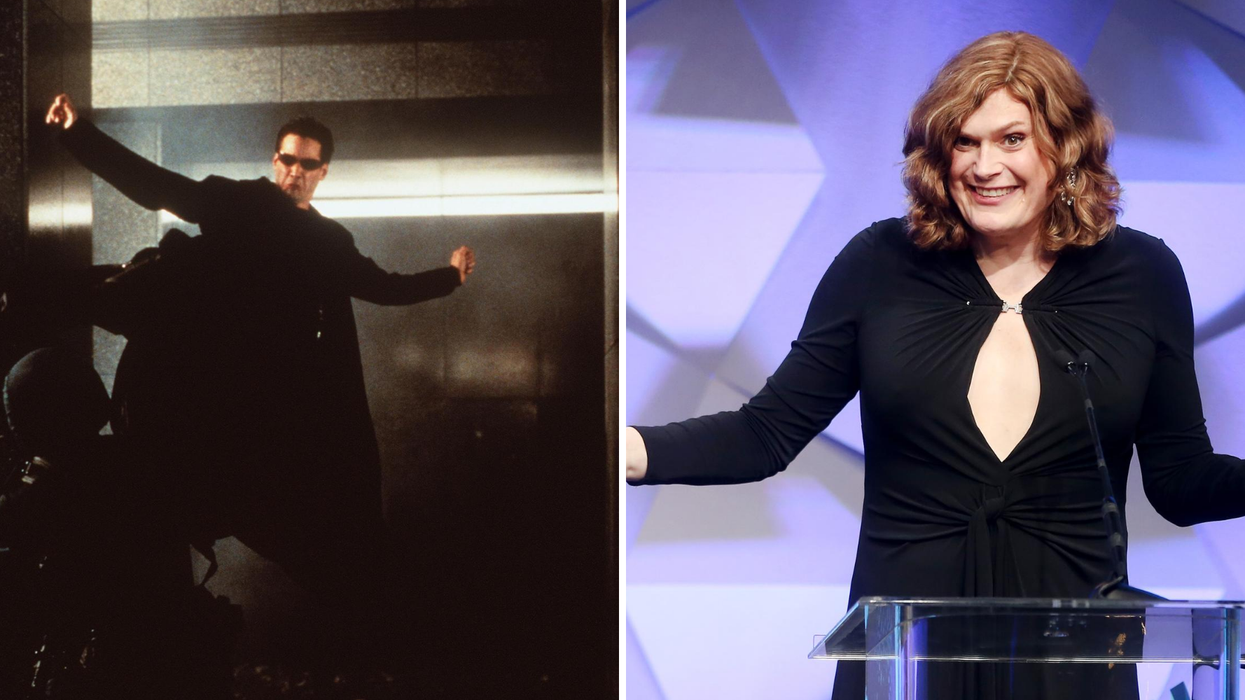Sanjana Varghese
Aug 07, 2020

Getty Images
The 90s psychological sci-fi thriller The Matrix has long been a source of discussion for die-hard film fans and casual viewers alike – do we all live in a simulation? Where did Keanu Reeves’ character, Neo, get that amazing trenchcoat?
Some fans – particularly those who have delved into the mythology – have often viewed the film through a trans lens.
For years, fans of THE MATRIX have discussed the film through a trans lens. If you’ve heard the theory before or ju… https://t.co/vDrAAAxNvO— NetflixFilm (@NetflixFilm) 1596738102
Recently, the director Lilly Wachowski looked back at the film and said that The Matrix was fundamentally about transformation, saying that trans people have told her that the movies saved their life. She said, “The Matrix was about a desire for transformation, but it was coming from a closeted point of view.”
Based on this new confirmation, Netflix has posted a Twitter thread outlining all the ways The Matrix is actually related to the experience of being transgender.
In 2012, director Lana Wachowski came out as trans while doing press for a film, and her sister Lilly, who co-directed the film, came out as trans four years later.
Andrea Long Chu, a critic and author, wrote about how trans women have claimed the Matrix as an allegory for transitioning since the movie came out, and the symbolism is pretty obvious once she points it out.
Thomas Anderson (Keanu Reeves’ character) is a hacker by night, he chooses another name (Neo) and he has a constant feeling that something in the world is slightly off.
Mister Smith, the agent in charge of trying to neutralise the threat posed by Neo, only refers to Neo by his old name – Thomas Anderson. Then there’s the central conceit of the film – the red pill and the blue pill.
And then there’s the whole red pill, blue pill connection.
And then there’s the whole red pill, blue pill connection. Not only is the pill literally Neo’s gateway to seeing… https://t.co/Id7Mz8oX4I— NetflixFilm (@NetflixFilm) 1596738887
If Neo takes the red pill, he’ll see reality for what it really is. But if he takes the blue pill, he can live in complacency for a little while longer. Long Chu also points out that in the 90s, prescription oestrogen literally came in the form of a red pill.
There’s other Easter eggs too – such as the character of Switch, who’s a man in the world and a woman in the Matrix, the fact that one of the first words viewers see is the word “trans” and that in the final credits, the camera zooms through a line of code between the letters M and F, literally going through the gender binary.
Call it a wild coincidence if you will, but it’s worth noting that one of the very first and last things you see on… https://t.co/LoLjmB3zVm— NetflixFilm (@NetflixFilm) 1596739117
The Matrix is a science fiction classic, yes, but it also paid tribute to the experiences of a community that is often ignored and marginalised.
In the video above, Wachowski adds, “I’m glad that it has gotten out – that was the original intention, but the corporate world wasn’t ready yet.”
Top 100
The Conversation (0)
Sort by













